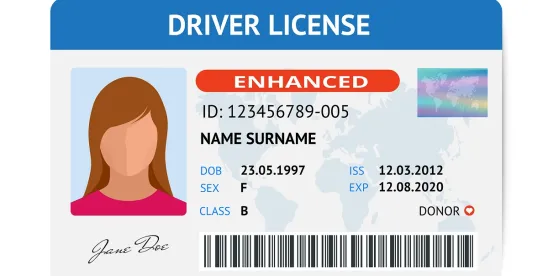Q: Can a California company require job applicants to have a driver’s license?
A: California SB 1100 amends the state’s Fair Employment Housing Act (FEHA), making it an unlawful employment practice for an employer to require job applicants to have a driver’s license, with limited exceptions.
Legislative History Surrounding SB 1100
According to the bill’s author, Senator Anthony Portantino, driver’s licenses are increasingly becoming a condition of employment in California. The law aims to prevent discrimination against individuals without driver’s licenses by narrowing the scope of allowable exceptions for requiring licenses as mandatory for employment.
The stated purpose of this new amendment is to promote employment opportunities for job applicants who rely on ride hails, public transit, biking, or walking as their primary means of transportation. Many of these job applicants lack the financial means to own or lease a vehicle, while some experience medical issues that hinder their ability to obtain a driver’s license. Others have lost their driving privileges. Furthermore, many Californians in urban areas have gotten accustomed to carpooling or using Uber. The legislature’s intent behind SB 1100 is to ensure that unnecessary barriers are not created for applicants.
The New Framework
Beginning on January 1, 2025, employers must satisfy a two-part test before they can include a statement in a job advertisement, posting, application, or other material stating an applicant must have a driver’s license:
- The employer must reasonably expect driving to be one of the job functions for the position and
- The employer must reasonably believe that satisfying the job function using an alternative form of transportation (such as ride hailing, taxi, carpooling, bicycling, or walking) would not be comparable in travel time or cost to the business.
A question may arise as to whether driving is an essential or major function of the job. The new FEHA amendment language does not require that driving be an essential function of the job. The statute only refers to situations where driving would be “one of the job functions.”
Penalties
Employers who violate the new FEHA amendment could be liable for compensatory damages, punitive damages, attorneys’ fees, and costs. In addition, they could face injunctions and declaratory relief.
Best Practices
- Assess each job position to evaluate whether it meets the two-part test. If a position does not meet the test, rewrite the job posting, application, and any other documents that note a driver’s license requirement for the position.
- Revise job descriptions accordingly.
- Evaluate and revise, if necessary, any hiring policies that refer to driver’s licenses.
- Train hiring managers. If the position does not satisfy the two-part test, hiring managers should avoid questioning job applicants about whether they have a driver’s license. Instead, they should focus on whether job applicants have a reliable mode of transportation that would enable them to arrive to work.
Conclusion
We will continue to monitor developments in this area. Employers are encouraged to seek legal assistance when implementing policies that support the company’s compliance with this new law.


 />i
/>i
